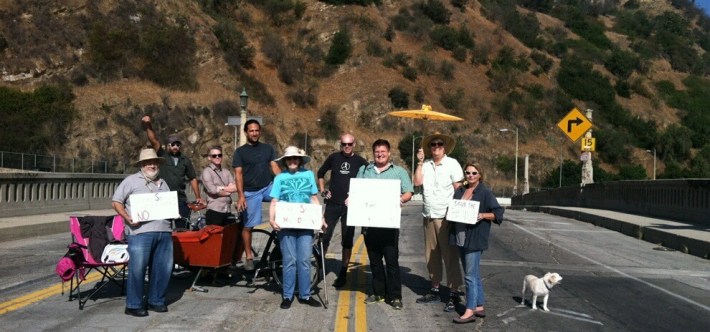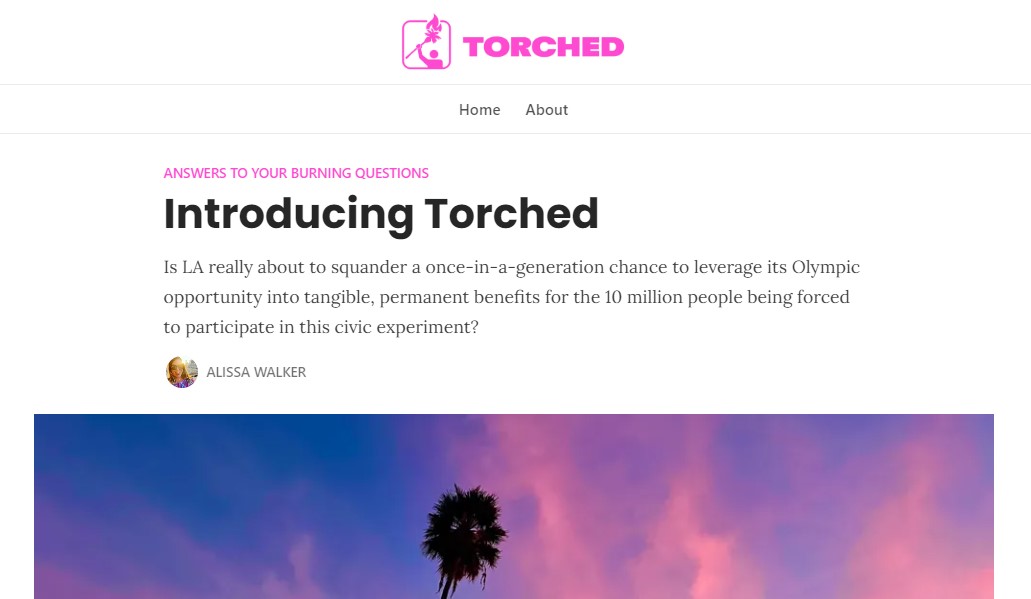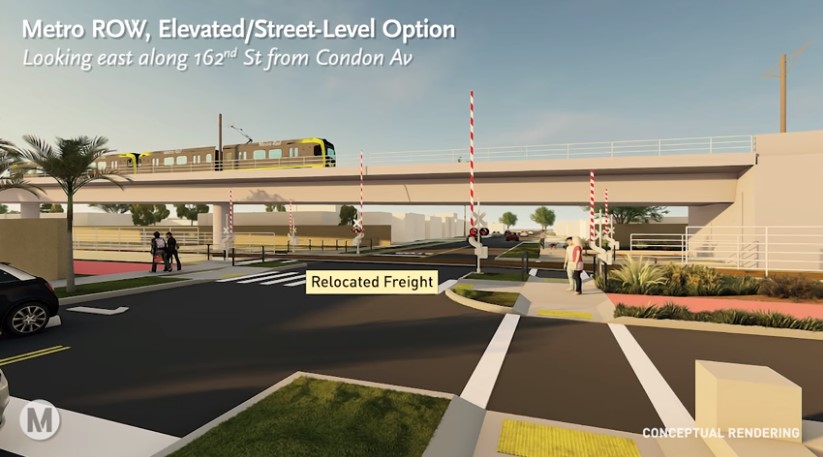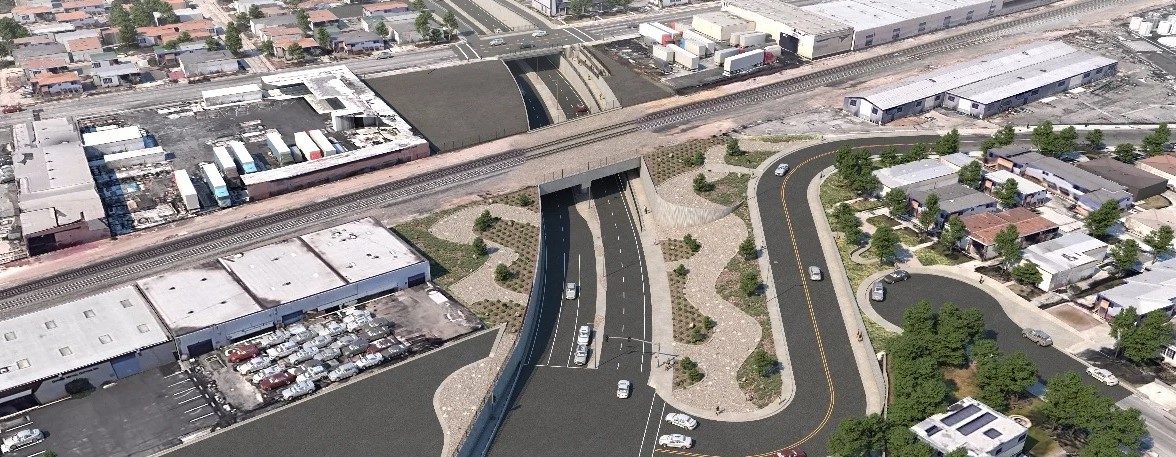Judge Denies Demolition Injunction for Riverside-Figueroa Bridge
1:04 PM PDT on June 2, 2014

At a hearing this morning, Judge James Chalfant denied an appeal that would have stopped the demolition of the city of Los Angeles' historic Riverside-Figueroa Bridge. Plaintiffs Enrich L.A. and RAC Design Build have been pushing for the city to preserve the span into and convert it into the Landbridge, an elevated park similar to New York City's High Line.
The Riverside-Figueroa Bridge spans the Los Angeles River in North East Los Angeles. It connects the communities of Elysian Valley and Cypress Park. The existing bridge was built in the 1920s, then partially re-built in the 1950s. In 2006, the Los Angeles City Council approved a project to tear down the bridge and replace it with a widened freeway-scale version. In 2008, the city designated the bridge as a historic-cultural landmark. In 2011, the city began construction on the widened replacement bridge, which opened to car traffic last week.
Landbridge proponents' counsel asserted that, since the bridge was named a historic landmark, the city is legally required to bring the demolition before its Cultural Heritage Commission, which it has not done. The plaintiffs also assert that the new wide bridge design has changed from what had been approved. Initially designs showed the new bridge inhabiting the same space as the existing bridge. According to the plaintiff's legal case documents, the "current construction extended beyond approved boundaries by more than 60 feet." This change in design, unannounced by the city of Los Angeles, has opened space for the two bridges to exist side by side.
Deputy City Attorney Mary Decker asserted that the 2006 City Council approval is all that was needed to proceed. The city further requested that, if an injunction were approved, the court must:
order immediate posting of a bond by the Petitioners. The amount of the bond must be at a minimum, $18,000/day for each day of delay starting June 9th, 2014, which is the amount of damages the City is estimated to incur based on delays and disruptions to the existing contractor schedule.
At the beginning of the hearing, the judge appeared heavily inclined to side with the city. He asserted that there was an "insurmountable... evidence problem" with Landbridge proponents' documentation being gathered from city documents posted on-line. He chastened Landbridge proponents that their Cultural Heritage Commission process requests were "too late" and "not the kind of thing you do at the last minute." Landbridge proponents' counsel responded that their clients had been working closely with the city, up until the Board of Public Works vote last week, and that asserting legal claims too soon could have soured a process that appeared to some hope of success.
The city attorney made a number of dubious assertions. She asserted that delaying demolition would present a risk to "public safety" and would "delay the L.A. River [revitalization] project." When the judge questioned if the bridge, which carried car traffic until last week, was "seismically acceptable," the city attorney stated that the bridge was "determined to be seismically vulnerable " and is "being demolished for that reason." Since the project's inception, roughly decade ago, the city's justification for demolition has been that the bridge is "functionally obsolete" based on a formula derived from the bridge's age, and its car traffic capacity. Seismic issues had not been used to justify demolition until Landbridge proponents began to press for preservation. Now the city asserts that the bridge can "collapse quickly" and invokes the spectre of "the I-35W bridge in Minnesota."
According to the judge, the city's $18,000/day cost rested on "skimpy" evidence: solely the testimony of City Bureau of Engineering Bridge Program Manager James Treadaway. When questioned, the city stood by their cost, under the assertion that all project construction work would end in the event of an injunction.
Ultimately, the judge, appearing frustrated, declared "too late" and then exited the courtroom without granting any injunction.
At the same time as the hearing, about a dozen Landbridge supporters rallied on the surface of the Riverside Figueroa Bridge. They utilized the now-car-free site as a quasi-park, sitting in lawn chairs. Images posted to social media show them holding signs encouraging "No Demo."
The city anticipates demolition will begin on June 9th and will be completed by mid-August. Landbridge proponents vowed to fight on. The demolition issue may come before the city's Cultural Heritage Commission which is scheduled to meet this Thursday June 5th.
Stay in touch
Sign up for our free newsletter
More from Streetsblog Los Angeles
Automated Enforcement Coming Soon to a Bus Lane Near You
Metro is already installing and testing on-bus cameras. Soon comes outreach, then warning tickets. Wilshire/5th/6th and La Brea will be the first bus routes in the bus lane enforcement program.
Metro Looks to Approve Torrance C Line Extension Alignment
Selecting the relatively low-cost hybrid alternative should help the oft-delayed South Bay C Line extension move a step closer to reality




